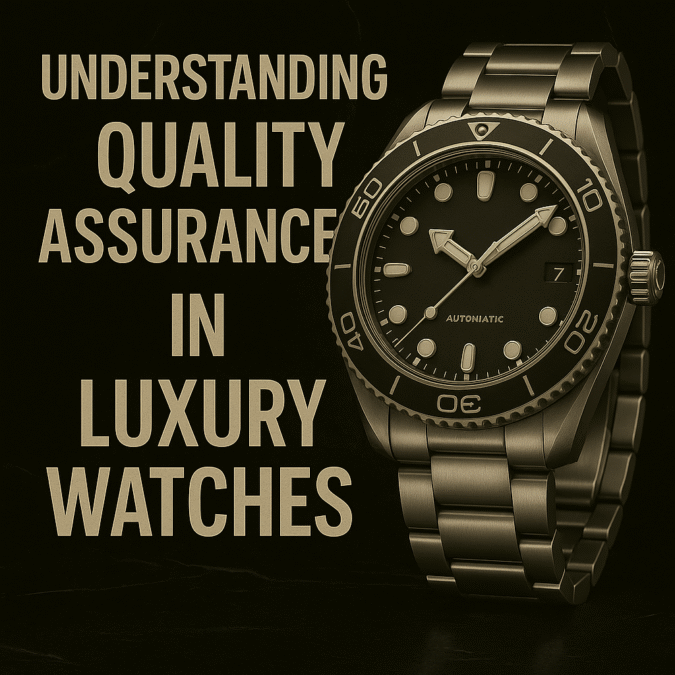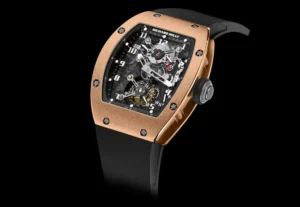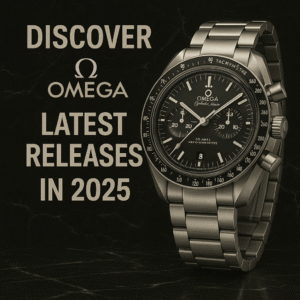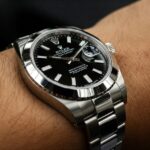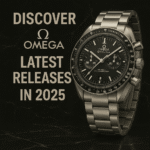Understanding the Importance of Quality Assurance in Luxury Watch Creation
Estimated reading time: 5 minutes
- Testing ensures the highest standards of quality in luxury watches.
- Different types of tests contribute to brand reputation and consumer trust.
- Balancing innovation and tradition is vital for modern luxury watch brands.
- Understanding testing can enhance both purchasing decisions for collectors and business strategies for boutique owners.
Table of Contents
- Introduction
- The Role of Testing in Luxury Watch Manufacturing
- The Impact of Testing on Brand Prestige
- The Challenges of Testing in Luxury Watchmaking
- Practical Takeaways for Boutique Owners and Collectors
- Connecting Retailers with Testing Insights
- Conclusion
Introduction
In the luxury watch industry, where precision and craftsmanship reign supreme, understanding the concept of a “test” plays a crucial role in both the manufacturing process and the overall market perception of a brand. From assessing technical proficiency to ensuring the highest quality standards, tests form the backbone of luxury watch creation and evaluation. In this blog post, we will explore the multifaceted uses of tests in horology, dive into their significance in the luxury watch market, and provide actionable insights for boutique owners and collectors alike.
The Role of Testing in Luxury Watch Manufacturing
The Definition of a Test
Before delving deeper, it’s essential to define what we mean by a “test.” A test is essentially a procedure or a series of activities designed to measure specific knowledge, skills, abilities, or characteristics (source: Cambridge Dictionary). In the context of luxury watches, this encompasses not only the technical testing of watch mechanisms but also assessments of brand reputation and consumer satisfaction.
Types of Tests in Watchmaking
- Quality Control Tests: The cornerstone of luxury watch manufacturing lies in rigorous quality control. From the selection of materials to the final assembly, each aspect undergoes scrutiny. Watchmakers typically perform several tests:
- Movement Accuracy Tests: These tests evaluate the precision of the watch’s movement, ensuring it adheres to the high standards expected in luxury timepieces.
- Water Resistance Tests: Given that many luxury watches are advertised as water-resistant, manufacturers conduct tests to ensure that the seals and casing uphold their integrity under pressure.
- Battery Life Tests: For quartz watches, testing battery life is vital; a luxury watch should maintain its functionality for an extended period.
- Durability Tests: Luxury watches are not just about aesthetics; they are robust pieces of engineering designed to survive daily wear. Durability testing includes:
- Shock Resistance Testing: Watches are subjected to impact tests to guarantee they can withstand jolts without damage.
- Scratch Resistance Tests: The materials, particularly sapphire crystal, must be tested for their ability to resist scratches over time.
- Certification Tests: Many luxury watch brands seek certification from independent organizations, such as the Swiss Official Chronometer Testing Institute (COSC). This certification involves rigorous assessments to ensure that the watches meet their declared accuracy—the hallmark of quality assurance.
- Consumer Testing: Beyond technical evaluation, understanding consumer sentiment through testing is equally important. Collectors and owners often provide feedback on factors such as design, comfort, functionality, and brand experience. This qualitative data helps brands refine their products and adapt to ever-changing consumer preferences.
The Impact of Testing on Brand Prestige
Enhancing Trust and Credibility
In an age where authenticity and quality are paramount, testing augments the trust consumers place in luxury watch brands. For discerning collectors, the added assurance that comes from certification marks a significant factor in their purchasing decision. For instance, brands that invest in thorough testing protocols gain a competitive edge, positioning themselves as leaders in the industry.
Case Study: Prominent Swiss Brands
Swiss watchmakers, such as Rolex and Omega, incorporate rigorous testing into their production processes. Rolex’s use of the Superlative Chronometer certification is a prime example of how testing can serve as a powerful marketing tool, illustrating the brand’s commitment to quality. Omega’s partnership with the COSC legitimizes its accuracy claims and helps build consumer confidence (source: Britannica).
The Challenges of Testing in Luxury Watchmaking
Balancing Innovation with Tradition
As the luxury watch market evolves, manufacturers face the challenge of integrating modern technologies while preserving traditional craftsmanship. For instance, smartwatch integration requires new testing parameters which can conflict with the traditional standards that collectors cherish. Balancing innovation with heritage is a nuanced process that demands careful consideration.
Market Variability and Consumer Expectations
Additionally, fluctuating consumer tastes and market trends complicate the testing process. Audiences today seek not only luxury in function but also storytelling through design. Hence, testing must extend beyond mechanical performance to encompass elements like aesthetics and emotional appeal, which define luxury in the modern marketplace.
Practical Takeaways for Boutique Owners and Collectors
For Boutique Owners:
- Invest in Supplier Relationships: Ensure that your suppliers and manufacturers adhere to strict testing standards. Knowing the pedigree of the components you source will bolster your inventory’s credibility.
- Educate Your Staff: Equip your team with the knowledge of testing standards and practices. When they can explain the significance of certifications to customers, it enhances the shopping experience and builds trust.
- Encourage Customer Feedback: Implement programs that solicit feedback from customers about their experience with your products. Use this data to gauge changing preferences and adjust inventory accordingly.
For Watch Collectors:
- Research Before You Buy: Before acquiring a luxury watch, research its certifications and testing procedures. Understanding the level of quality assurance can impact your choice.
- Participate in Community Forums: Engage with other collectors to exchange insights about brands and their testing practices. The collector community is a valuable resource for knowledge on quality and durability.
- Look for Brands that Value Testing: When considering new purchases, prioritize brands known for their commitment to quality testing. An investment in such pieces not only brings satisfaction but can also result in better resale value.
Connecting Retailers with Testing Insights
At Kalitrust.com, we recognize the significance of a testing framework in the luxury watch marketplace. As a global directory for watch retailers, we aim to connect boutique owners with resources and insights that can enhance their business operations. By mapping global boutiques and automating directory listings, we provide watch retailers with the tools needed to ensure they deliver the highest quality products to their customers.
Conclusion
In conclusion, the concept of a “test” in watchmaking transcends simple evaluation; it is essential for maintaining the integrity and prestige of luxury brands. For the watch industry, understanding testing from both a technical and consumer standpoint is vital for success. Collectors and industry professionals must embrace the nuances of testing to ensure they engage with reputable products that epitomize quality and craftsmanship.
For more information on how we at Kalitrust.com can assist you in navigating the luxury watch retail landscape, including connecting you with top-notch boutiques and insights into best practices in testing, visit our website today. Elevate your understanding and exploration of luxury watches—together, we can create a future dedicated to excellence and authenticity in horology.
FAQs
- What is testing in the luxury watch industry?
- Why is testing important for luxury watch brands?
- What types of tests are commonly performed on luxury watches?
What is testing in the luxury watch industry?
Testing in the luxury watch industry encompasses various procedures that assess the quality, accuracy, durability, and overall performance of watches, ensuring they meet high standards.
Why is testing important for luxury watch brands?
Testing builds consumer trust and brand credibility, providing customers with confidence in their purchase decisions based on certification and performance guarantees.
What types of tests are commonly performed on luxury watches?
Common tests include accuracy tests, water resistance tests, durability tests, and certification tests that verify compliance with standards set by independent organizations.

